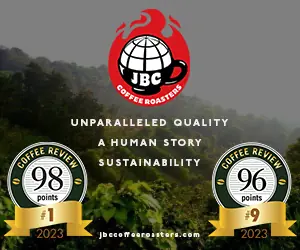Coffee is traditionally grown in shade in many, but certainly not all, parts of the world. In some places the arabica trees require protection from the tropical sun. In other, wetter places, shade is not practical because it encourages leggy, disease-prone trees.
Shade may be provided by rows of carefully managed non-native trees that are often sterile to prevent their seeds from sprouting and competing with the coffee. In many parts of the world, however, shade is a serendipitous business, and coffee is grown by small farmers as one component in a rich jumble of native trees, fruit trees, legumes, and other vegetables. It is this kind of shade that scientists and birders discovered was providing particularly important habitat for migrating song birds, especially those that migrate through Central America.
Meanwhile, more and more shade coffee was being replaced or displaced by what environmentalists call technified coffees. These are coffees from recently developed hybrid varieties of arabica that grow well in full sun. These hybrid trees are disease resistant, and bear more coffee faster than traditional varieties. They also require more chemical fertilizers, pesticides, and fungicides, and may also display less quality and character in the cup.
The Smithsonian Institution has led a movement to define and certify coffees that are grown in the diverse, multi-species shade that prevails among many subsistence growers. The Smithsonian’s well-organized, well-publicized effort has been met with anger and hurt among many coffee growers with larger farms who feel that they are being ecologically responsible, but who feel they cannot, for a variety of reasons ranging from economic (high labor costs) to climatic (too much rain and cloud cover) grow their coffee in dense, multi-species shade.
The debate concerning a proper definition for "shade grown" is working its way through e-mails and coffee conferences, hopefully toward a definition that is both fair and environmentally sound. As it is now, the only existing certification procedure is very limited. The Smithsonian Institution licenses certified organic coffees that also meet Smithsonian criteria for growth under a biodiverse shade canopy. Such ultimately environmentally correct coffees are permitted to use the Smithsonian Migratory Bird Center’s Bird Friendly trademark. As for other, conventionally shade-grown coffees, you will have to take the seller’s word in regard to their avian congeniality.










